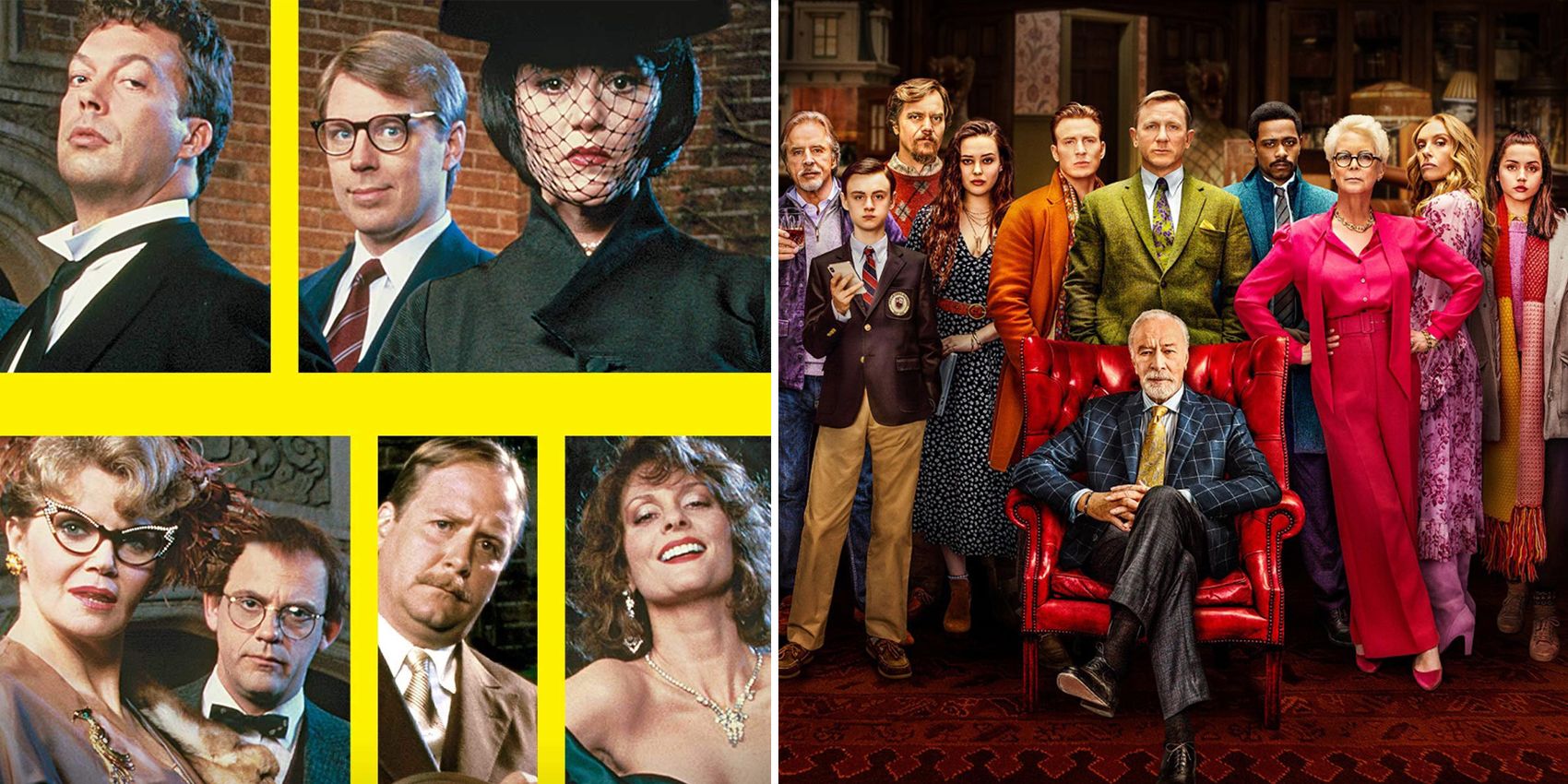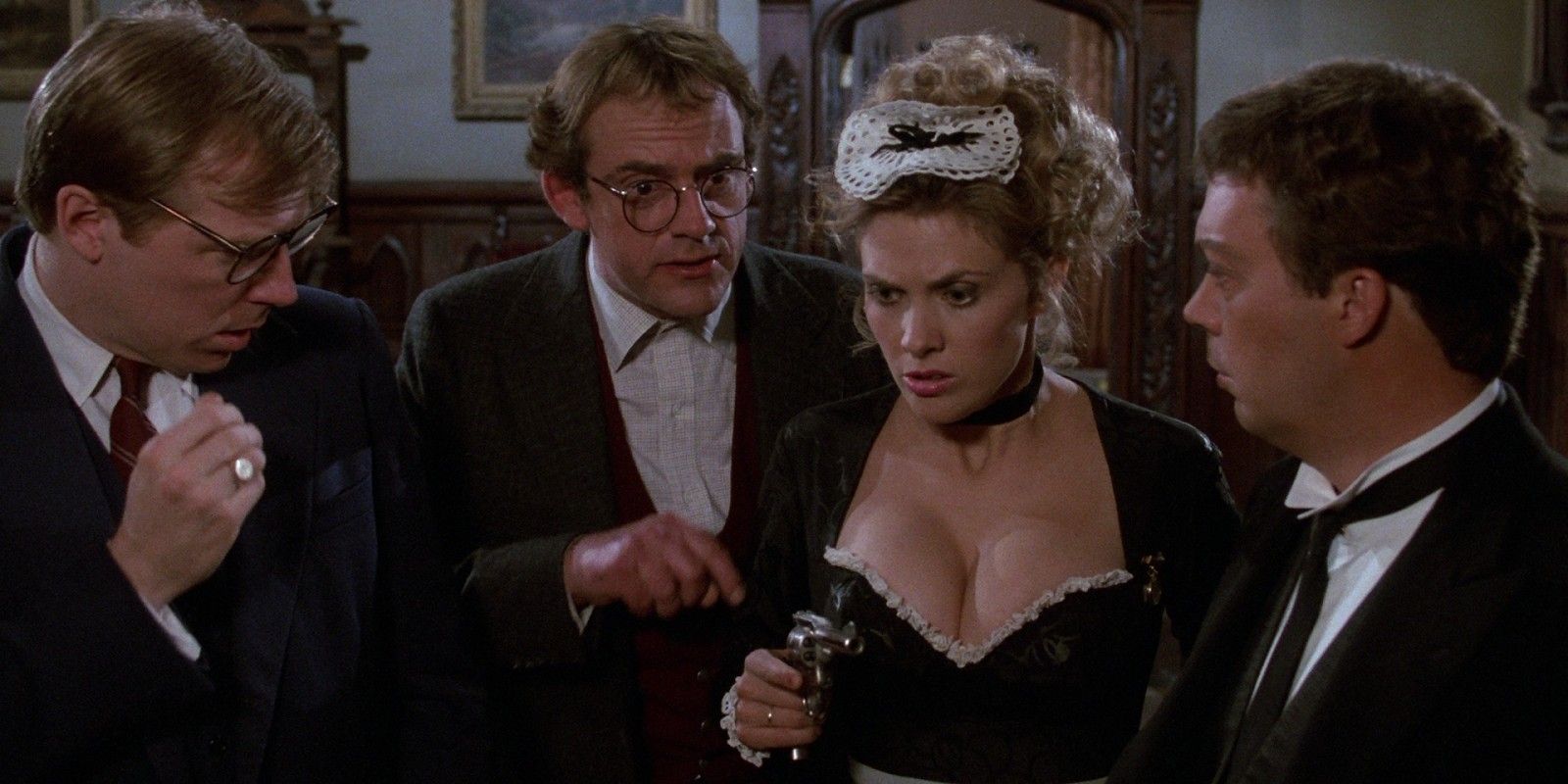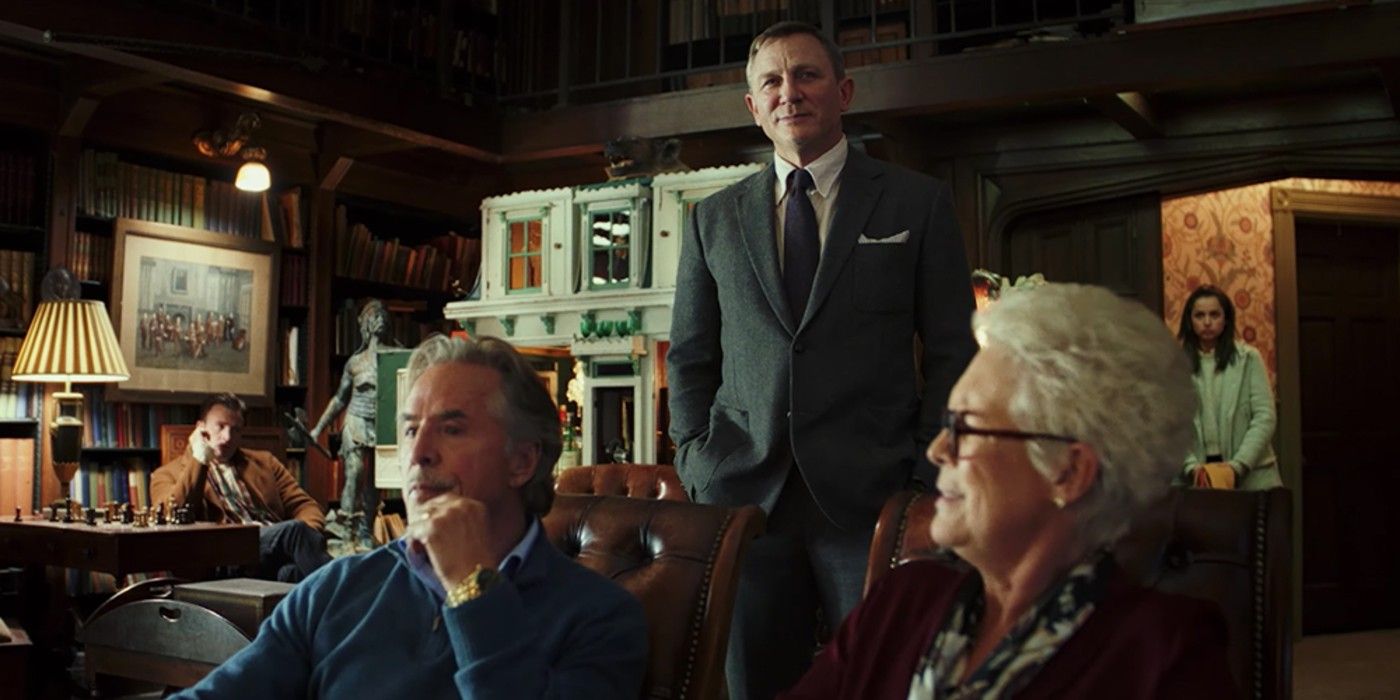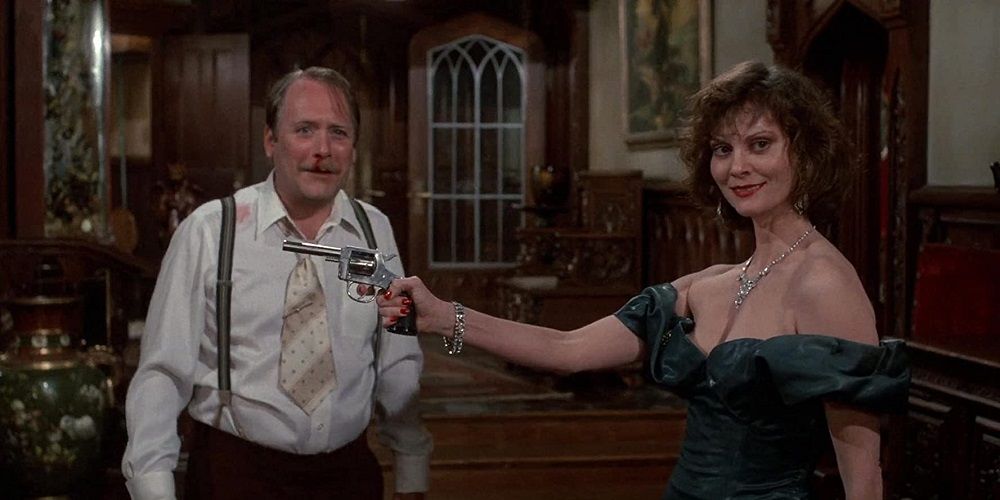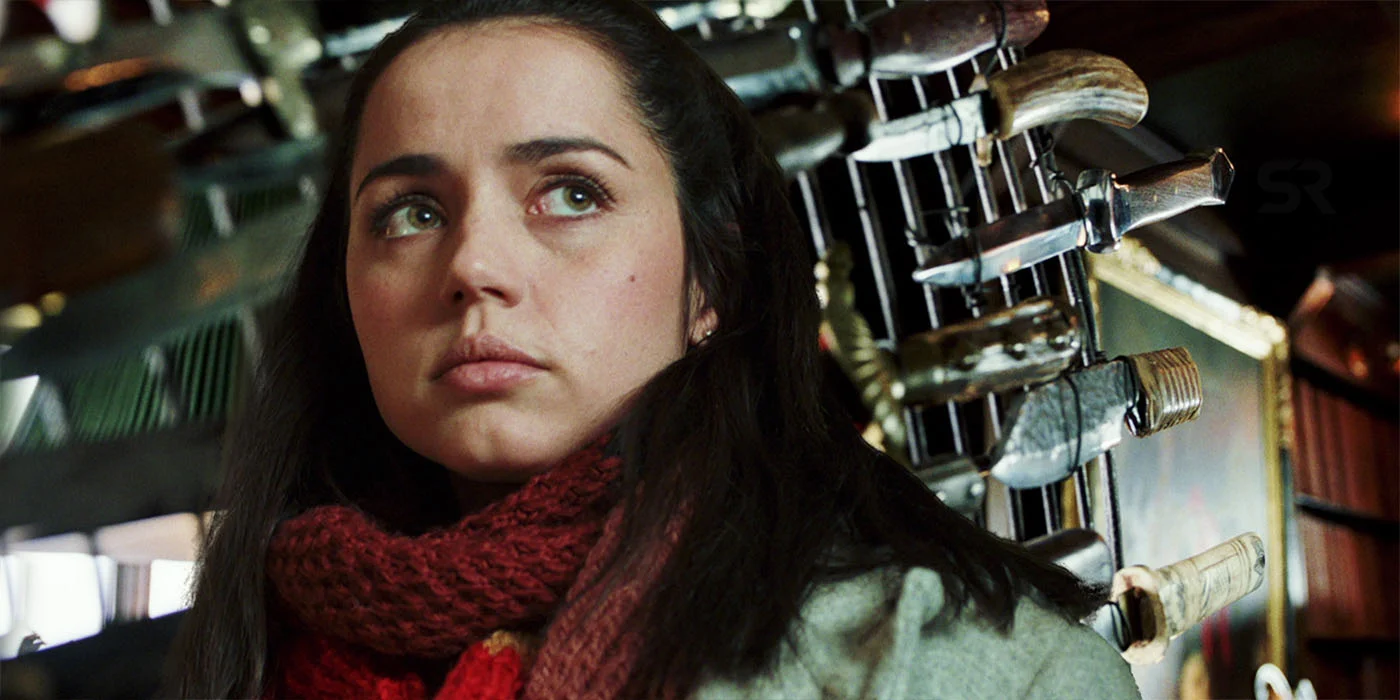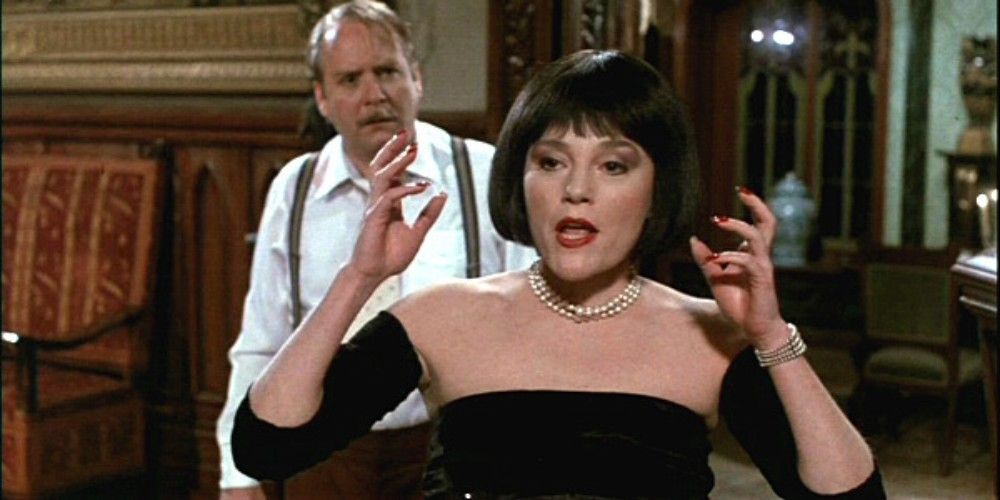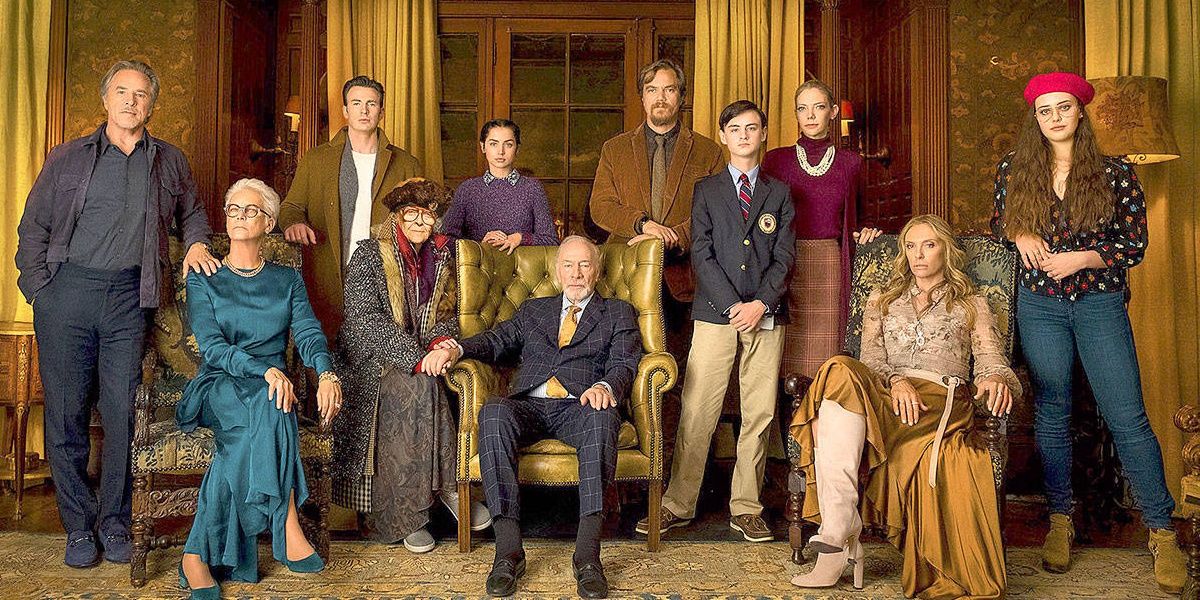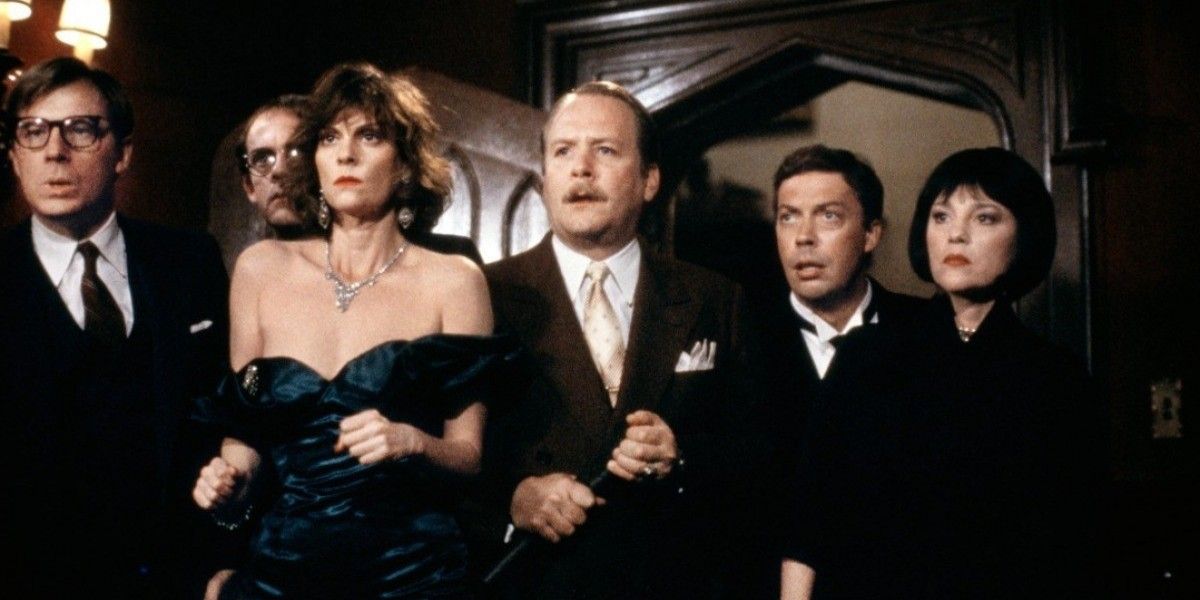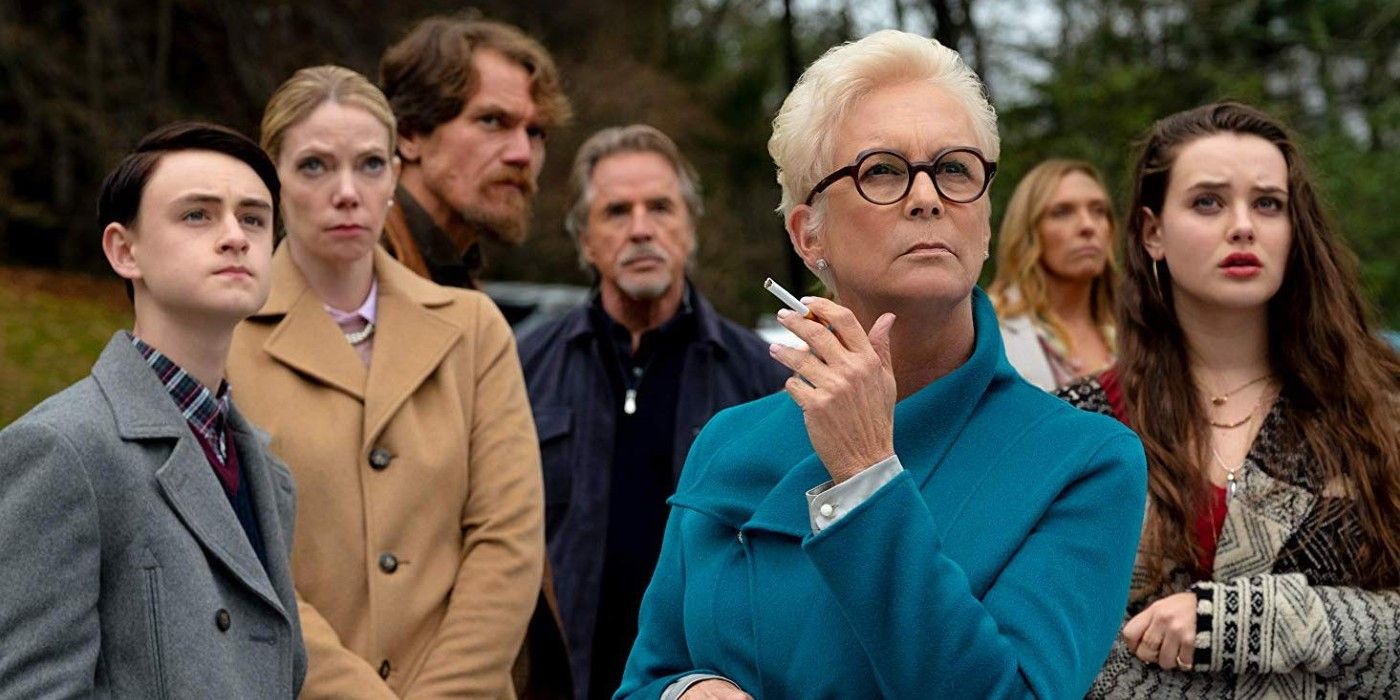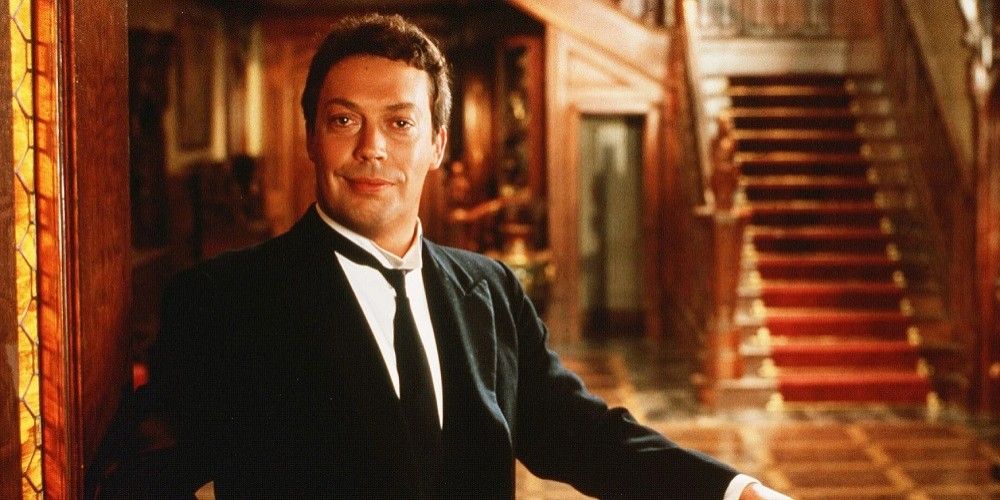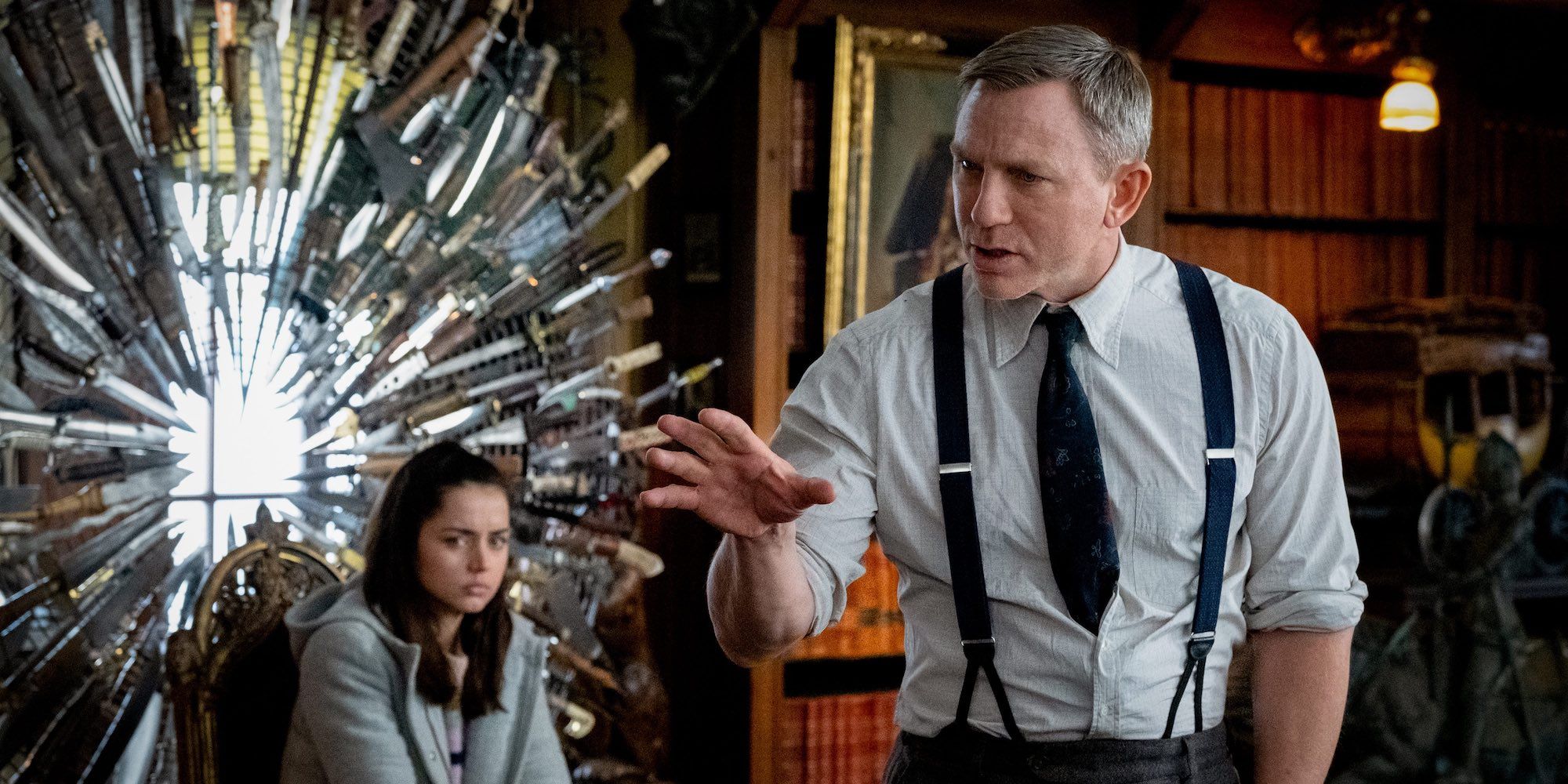Based on the popular detective board game of the same name, Clue remains one of the defining films of the murder mystery genre, even though it may be long on laughs and short on ingenuity. Despite its over-reliance at times on physical comedy rather than compelling thrills, it understands one simple truth; the eccentric characters and interesting settings of a murder mystery are often more important than the murder itself.
Knives Out has been hailed as one of the most exciting murder mysteries since the 1985 classic, breathing life into a genre that has only found limping success with remakes like Murder On The Orient Express. Star Wars: The Last Jedi director Rian Johnson scaled back from blockbusters to focus on this tight thriller, which focuses on an elite family squabbling in the aftermath of its patriarch's death, possibly the result of foul play. Since it's been dubbed "this generation's Clue," fans of whodunits have naturally begun to compare the two.
Clue: Cleverness
There's nothing subtle or mysterious about the humor offered in Clue - it's ubiquitous to the point of relentless at times. But even as it descends into the comically absurd with slapstick, it retains a dryness that is so sophisticated it might go over viewers' heads.
Clue makes no apologies for the fact that nearly every line of dialogue is a punchline, and if it isn't, it's setting one up. It has a variety of gags that vacillate between the side-splitting and the deadpan, which ensures it will never be boring.
Knives Out: Misdirection
For fans of intricate mysteries, Knives Out promises a level of complexity that will keep pseudo-sleuths glued to their clues. The film keeps viewers guessing even as it vacillates between points of view. Events happening concurrently while being told sequentially could be difficult to understand, but Rian Johnson makes it work with the clever use of misdirection.
The film's clues are not overt, and viewers will find themselves needing to pay attention to subtle asides and brief mentions of evidence between characters. Viewers who look for obvious clues will be blown away by those hidden in plain sight.
Clue: Momentum
The best murder mysteries start slowly and gradually build to their exciting climax, and Clue is no exception. The film begins with a volley of questions, and as each new clue reveals an answer another question emerges, until the suspense is enough to kill a person.
By half way through the film, the entire gaggle of party goers are sprinting down the halls trying to hide bodies, weapons, and themselves from the potential murderer. The ensuing calamity as a spectacular sense of urgency that sustains itself through to the rousing finish.
Knives Out: Diversity
Looking at the cast of main characters for Clue, there's an extreme lack of diversity (all of them are white). Knives Out sought to remedy the problem of relegating the roles for people of color to cooks and clueless cops by including characters like Marta (Ana de Armas), a witness who becomes a detective in her own right.
Furthermore, the juxtaposition between the elitist Thrombeys and the rest of the cast allowed for a range of class structures, which ultimately allowed for a greater variety of stories to be told. There were no faux homosexual characters, nor scantily-dressed maids with poor French accents.
Clue: Unpredictability
The pace of Clue might be dizzying, especially after the tenth time Tim Curry scurries from the library to the study across the foyer floor, but it only adds to the films' wonderful unpredictability. Viewers don't know what will happen next!
Like the best murder mysteries, the film offers red herrings and false leads so that viewers -like the characters they're following- will be thrown off the killer's trail. Even down to the film's final moments, any outcome is possible.
Knives Out: Subversion
For it's time Clue had a top-notch cast of comedic talent, but many of the actors played into stereotypes that weren't far off from characters they had played in other films. Knives Out subverted expectations by casting actors who could play against type, making viewers uncertain of their motives.
The impressive ensemble cast included Jamie Lee Curtis, Chris Evans, Christopher Plummer, Toni Collette, Michael Shannon, Don Johnson, and of course Daniel Craig (among others) as the last of the gentlemen sleuths Benoit Blanc, who was a Southern version of Hercule Poirot. The characters all seemed like real -if eccentric- people, not a series of tropes.
Clue: Suspense
Because everyone in Clue is either trying to stay alive or trying to kill everyone else, there's a sense of ominous dread that can't occur in Knives Out simply because of the way it's structured. The suspense is further amplified by the setting of a large creepy house, on a dark and stormy night.
Viewers experience a jolt every time the door bell rings, every time the lights suddenly get turned off, and every time someone elicits a blood-curdling scream. It might seem like old-fashioned narrative beats, but they're efficacy is timeless.
Knives Out: Complexity
That Knives Out is focused on a tight murder mystery seems almost like a bonus to viewers who responded to the subtle message it managed to work into its second act. It brought in political commentary that managed to build with each new clue and each character's backstory.
Rian Johnson subverted tropes and asked tough questions; can a moral person survive in an immoral system? Will liberal-minded people turn mean if their status is threatened? These queries were in addition to concepts of race relations, which quietly underscored the interactions between Marta, her family, and the Thrombeys when they resorted to blackmail.
Clue: Mystery
Like the Parker Bros' board game, Clue requires certain involvement from its viewers. While it can be enjoyed as a madcap farce full of colorful characters, it's best consumed as an active participant. Viewers need to pay close attention to what's happening in every scene, such as how many party guests there are in a room at all times, to solve the mystery.
The best murder mysteries provide just enough evidence for viewers to follow along at home. There are enough moments of revelation sprinkled throughout Clue for eagle-eyed amateur sleuths to make their own deductions with confidence.
Knives Out: Resolution
As exciting as the mystery itself is, any fan of detective fiction knows the best part of the game is the end, when Sherlock Holmes or similar super sleuth rattles off the various ways he arrived at his conclusion and points to the culprit.
Knives Out follows a similar vein with an extraordinary ending that ties up all its loose ends, and leaves viewers feeling satisfied. Unlike Clue, it doesn't have three separate endings and several exhaustive false starts.

